Job Opportunities in Qatar
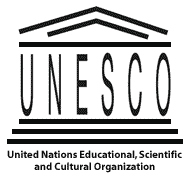
September 15, 2024
UNESCO
Doha
Programme Coordination Officer (Re-advertisement)
OVERVIEW
Parent Sector : Field Office
Duty Station: Doha
Classification of duty station: [[filter12]]
Standard Duration of Assignement : [[filter13]]
Job Family: Programme Coordination
Type of contract : Non Staff
Level : Level 4
Duration of contract : 1 year
Recruitment open to : Internal and external candidates
Application Deadline (Midnight Paris Time) : 30/09/2024
UNESCO Core Values: Commitment to the Organization, Integrity, Respect for Diversity, Professionalism
CONTEXT AND BACKGROUND
The UNESCO Regional Office for the Gulf States and Yemen (the Office), based in Doha, covers six Gulf Cooperation Council (GCC) countries and the Republic of Yemen. In line with UNESCO’s global priorities and five major programmes (I. Education, II. Natural Sciences, III. Social and Human Sciences, IV. Culture and V. Communication and Information), the Office sets regional and local programmes of action in consultation and partnership with the seven Member States.
The Office collaborates through inter-agency mechanisms with resident and non-resident UN agencies in its seven countries as well as at the regional level to increase coherence, effectiveness, and relevance of its interventions with the overall goal to maximize the impact of its work. The Office is member of five UN Country Teams in the United Arab Emirates, the Kingdom of Saudi Arabia, the Kingdom of Bahrain, the State of Kuwait, and the Republic of Yemen. As such, the Office contributes to UN customary work, and planning and programming processes, including UN Common Country Analysis (CCAs), United National Sustainable Development Cooperation Frameworks (UNSDCF) formulations, as well as UN Joint Programmes, UN system-wide normative work, and thematic and programmatic working groups.
The Office works to promote UNESCO’s global priorities including gender and the 2030 Agenda for Sustainable Development. In partnership with the Member States within the cluster, the Office provides technical assistance, capacity building, and advocacy linked to UNESCO’s main fields of competence, in the areas of education, sciences, culture, and communications/information.
TASKS AND EXPECTED OUTPUTS
Under the authority of the Director of the Regional Office who also serves as UNESCO Representative to the seven countries, the Programme Coordination Officer provides support to the Director of the Office in UN coordination, management support, monitoring and reporting, and external communication by carrying out the following duties:
1. Management Support
COMPETENCIES (Core / Managerial) Accountability (C) Communication (C) Innovation (C) Knowledge sharing and continuous improvement (C) Planning and organizing (C) Results focus (C) Teamwork (C) - For detailed information, please consult the UNESCO Competency Framework .
REQUIRED QUALIFICATIONS
Education
Advanced university degree (Master's or equivalent) in International Development, International Relations, Social Sciences, Political Sciences or a related field.
Work experience
Minimum 4 years of relevant professional experience in management support, international development, and/or UN Coordination, of which preferably 2 years acquired at regional and/or international level, preferably in an international organization.
Relevant experience at the national or international level in providing management advisory services, and hands-on experience in design, monitoring, and evaluation.
Sound knowledge of the UN System and Resident Coordinator system, procedures, and operational activities for development is an asset.
Other Skills/Competencies
Good knowledge of the Region’s political, social, and cultural contexts.
Good analytical, organizational, and project management skills.
Excellent writing skills.
Excellent coordination and interpersonal skills.
Capacity to build and maintain effective working relations with national/local authorities, relevant institutions, intergovernmental and non-governmental organizations.
Proven ability to communicate and negotiate effectively and persuasively (orally and in writing) with various stakeholders at all levels, within and outside of the Organization.
Ability to work effectively in a team and to function within a multi-cultural environment.
Solid IT skills including knowledge of Microsoft Office software and knowledge management platforms.
Languages
Excellent knowledge (written and spoken) of English. Knowledge of Arabic will be an advantage.
CONDITION OF EMPLOYMENT
UNESCO Salaries in Qatar are paid in Qatari Riyal, the annual remuneration for the post is QAR 322,854. UNESCO Service Contract benefits includes 30 days of annual leave as well as a contribution to pension scheme and health insurance upon proof of inscription.
SELECTION AND RECRUITMENT PROCESS
Please note that all candidates must complete an on-line application and provide complete and accurate information. To apply, please visit the UNESCO careers website. No modifications can be made to the application submitted.
The evaluation of candidates is based on the criteria in the vacancy notice, and may include tests and/or assessments, as well as a competency-based interview.
UNESCO uses communication technologies such as video or teleconference, e-mail correspondence, etc. for the assessment and evaluation of candidates.
Please note that only selected candidates will be further contacted and candidates in the final selection step will be subject to reference checks based on the information provided.
Footer
UNESCO recalls that paramount consideration in the appointment of staff members shall be the necessity of securing the highest standards of efficiency, technical competence and integrity. UNESCO applies a zero-tolerance policy against all forms of harassment. UNESCO is committed to achieving and sustaining equitable and diverse geographical distribution, as well as gender parity among its staff members in all categories and at all grades. Furthermore, UNESCO is committed to achieving workforce diversity in terms of gender, nationality and culture. Candidates from non- and under-represented Member States ( last update here ) are particularly welcome and strongly encouraged to apply. Individuals from minority groups and indigenous groups and persons with disabilities are equally encouraged to apply. All applications will be treated with the highest level of confidentiality. Worldwide mobility is required for staff members appointed to international posts.
UNESCO does not charge a fee at any stage of the recruitment process.
Parent Sector : Field Office
Duty Station: Doha
Classification of duty station: [[filter12]]
Standard Duration of Assignement : [[filter13]]
Job Family: Programme Coordination
Type of contract : Non Staff
Level : Level 4
Duration of contract : 1 year
Recruitment open to : Internal and external candidates
Application Deadline (Midnight Paris Time) : 30/09/2024
UNESCO Core Values: Commitment to the Organization, Integrity, Respect for Diversity, Professionalism
CONTEXT AND BACKGROUND
The UNESCO Regional Office for the Gulf States and Yemen (the Office), based in Doha, covers six Gulf Cooperation Council (GCC) countries and the Republic of Yemen. In line with UNESCO’s global priorities and five major programmes (I. Education, II. Natural Sciences, III. Social and Human Sciences, IV. Culture and V. Communication and Information), the Office sets regional and local programmes of action in consultation and partnership with the seven Member States.
The Office collaborates through inter-agency mechanisms with resident and non-resident UN agencies in its seven countries as well as at the regional level to increase coherence, effectiveness, and relevance of its interventions with the overall goal to maximize the impact of its work. The Office is member of five UN Country Teams in the United Arab Emirates, the Kingdom of Saudi Arabia, the Kingdom of Bahrain, the State of Kuwait, and the Republic of Yemen. As such, the Office contributes to UN customary work, and planning and programming processes, including UN Common Country Analysis (CCAs), United National Sustainable Development Cooperation Frameworks (UNSDCF) formulations, as well as UN Joint Programmes, UN system-wide normative work, and thematic and programmatic working groups.
The Office works to promote UNESCO’s global priorities including gender and the 2030 Agenda for Sustainable Development. In partnership with the Member States within the cluster, the Office provides technical assistance, capacity building, and advocacy linked to UNESCO’s main fields of competence, in the areas of education, sciences, culture, and communications/information.
TASKS AND EXPECTED OUTPUTS
Under the authority of the Director of the Regional Office who also serves as UNESCO Representative to the seven countries, the Programme Coordination Officer provides support to the Director of the Office in UN coordination, management support, monitoring and reporting, and external communication by carrying out the following duties:
1. Management Support
- Assist the Director in the Office’s strategic planning and provide overall management and coordination support of UNESCO.
- Keep abreast of critical/strategic initiatives as delegated/requested and identify/prioritize issues in need of immediate attention, including global and regional initiatives, involving the direct participation of the Director, as well as on matters related to the implementation of the 2030 Agenda for Sustainable Development.
- Provide support to the Director by timely preparing substantive materials, including background/briefing papers, speeches, and talking points as requested. Participate in meetings as required, report on outcomes, and follow up on action points. Prepare draft correspondence for the signature of the Director.
- Provide event coordination for initiatives under the Director’s leadership or participation, including preparing concept notes, invitations, speaking guides, news articles, logistics, etc. Liaise with partners on such events including in the coordination.
- Coordinate Programme Staff meetings chaired by the Director, in terms of organizing the agenda, planning and follow up to meetings, drafting of meeting notes, as well the monitoring of action points, decisions, recommendations, and deadlines, with regular updates on important issues.
- Introduce strategic programme planning and management tools towards office management, in particular coordinate updating the Office Strategic Plan and relevant UNESCO Country Strategies (UCS).
- Lead the development of programmatic office briefings for high-level missions and coordinate inputs with programme colleagues.
- Support the Director in knowledge management and file important documents on the internal knowledge management platform.
- Follow activities of UNCTs and UN inter-agency working groups in cluster countries and ensure that the Director remains updated. Follow UNCT meetings with/or on behalf of the Director when requested.
- Coordinate and keep an overview of UNESCO’s participation in and contribution to various UN inter-agency thematic and programmatic working groups in cluster countries.
- Follow up on UNESCO's programmatic inputs to UN country strategic planning and monitoring, including to CCA/UNCCSF/UNDAF processes in Kuwait, KSA, Bahrain, UAE, and Yemen by coordinating programme staff inputs and following up with RC offices;
- Provide assistance in the preparation of inputs in preparation for UNCT meetings, and ensure proper record of decisions taken and their timely follow-up on the internal knowledge management platform.
- Liaise and ensure coordination with RCO offices and other members of the UN Country Teams and implementing partners on office-relevant matters, including in ad-hoc and annual reporting.
- Lead the development of the annual office achievements report, including coordinating inputs of all five sectors, language editing and finalizing for publication.
- Oversee and ensure the smooth flow of relevant information within the office and with colleagues at the national, regional and HQ level, as well as with UNESCO national commissions, permanent delegations, and sister UN agencies.
- Contribute to the office’s outreach and visibility of activities through the preparation of news articles related to the Agenda 2030, UNCT activities, or involve the participation of the Director.
COMPETENCIES (Core / Managerial) Accountability (C) Communication (C) Innovation (C) Knowledge sharing and continuous improvement (C) Planning and organizing (C) Results focus (C) Teamwork (C) - For detailed information, please consult the UNESCO Competency Framework .
REQUIRED QUALIFICATIONS
Education
Advanced university degree (Master's or equivalent) in International Development, International Relations, Social Sciences, Political Sciences or a related field.
Work experience
Minimum 4 years of relevant professional experience in management support, international development, and/or UN Coordination, of which preferably 2 years acquired at regional and/or international level, preferably in an international organization.
Relevant experience at the national or international level in providing management advisory services, and hands-on experience in design, monitoring, and evaluation.
Sound knowledge of the UN System and Resident Coordinator system, procedures, and operational activities for development is an asset.
Other Skills/Competencies
Good knowledge of the Region’s political, social, and cultural contexts.
Good analytical, organizational, and project management skills.
Excellent writing skills.
Excellent coordination and interpersonal skills.
Capacity to build and maintain effective working relations with national/local authorities, relevant institutions, intergovernmental and non-governmental organizations.
Proven ability to communicate and negotiate effectively and persuasively (orally and in writing) with various stakeholders at all levels, within and outside of the Organization.
Ability to work effectively in a team and to function within a multi-cultural environment.
Solid IT skills including knowledge of Microsoft Office software and knowledge management platforms.
Languages
Excellent knowledge (written and spoken) of English. Knowledge of Arabic will be an advantage.
CONDITION OF EMPLOYMENT
UNESCO Salaries in Qatar are paid in Qatari Riyal, the annual remuneration for the post is QAR 322,854. UNESCO Service Contract benefits includes 30 days of annual leave as well as a contribution to pension scheme and health insurance upon proof of inscription.
SELECTION AND RECRUITMENT PROCESS
Please note that all candidates must complete an on-line application and provide complete and accurate information. To apply, please visit the UNESCO careers website. No modifications can be made to the application submitted.
The evaluation of candidates is based on the criteria in the vacancy notice, and may include tests and/or assessments, as well as a competency-based interview.
UNESCO uses communication technologies such as video or teleconference, e-mail correspondence, etc. for the assessment and evaluation of candidates.
Please note that only selected candidates will be further contacted and candidates in the final selection step will be subject to reference checks based on the information provided.
Footer
UNESCO recalls that paramount consideration in the appointment of staff members shall be the necessity of securing the highest standards of efficiency, technical competence and integrity. UNESCO applies a zero-tolerance policy against all forms of harassment. UNESCO is committed to achieving and sustaining equitable and diverse geographical distribution, as well as gender parity among its staff members in all categories and at all grades. Furthermore, UNESCO is committed to achieving workforce diversity in terms of gender, nationality and culture. Candidates from non- and under-represented Member States ( last update here ) are particularly welcome and strongly encouraged to apply. Individuals from minority groups and indigenous groups and persons with disabilities are equally encouraged to apply. All applications will be treated with the highest level of confidentiality. Worldwide mobility is required for staff members appointed to international posts.
UNESCO does not charge a fee at any stage of the recruitment process.
We regret to inform you that this job opportunity is no longer available
Latest Job Opportunities
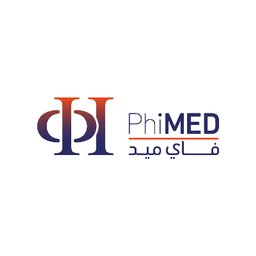


October 19, 2024
ASMACS QATAR
FM OPERATIONS TEAM LEAD-SOFT SERVICE (cleaning/housekeeping)
Doha
FULL TIME
View DetailsSimilar Jobs

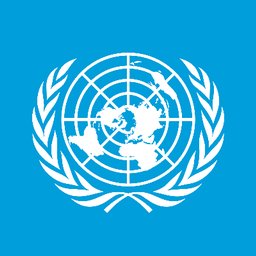
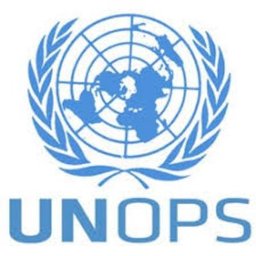
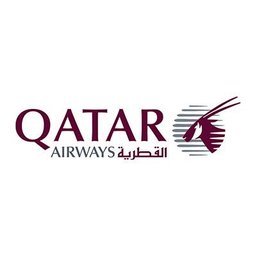
September 16, 2024
United Nations Educational, Scientific and Cultural Organization (UNESCO)
Programme Coordination Officer (Re-advertisement)
Doha
FULL TIME
View Details